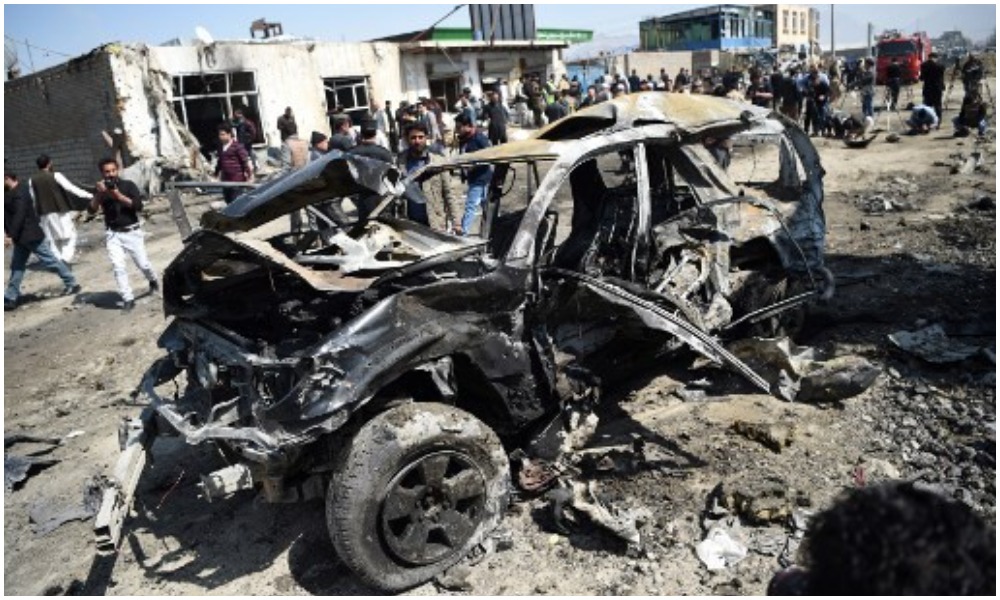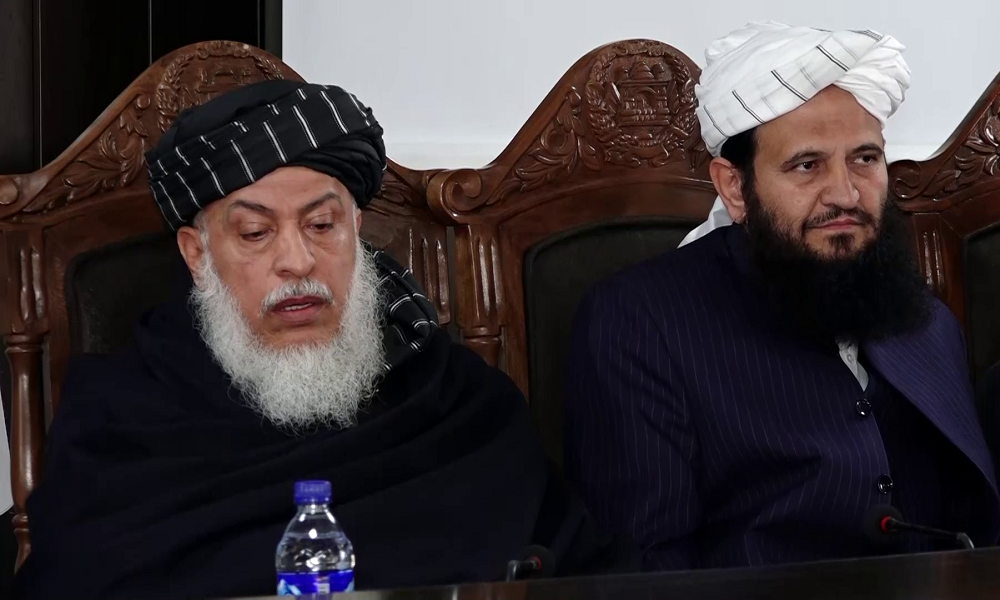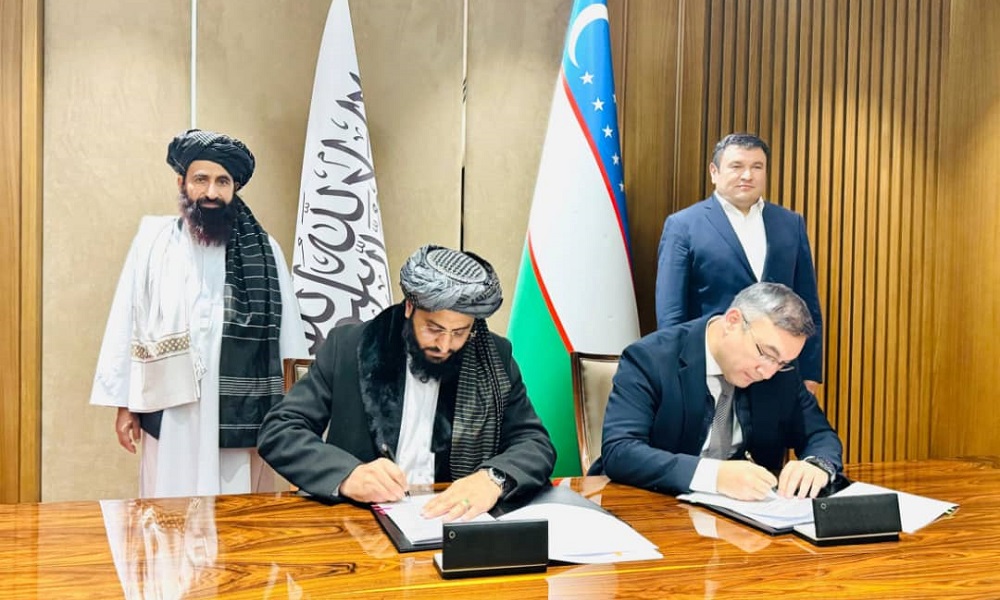Latest News
UNAMA documents 5,939 civilian casualties in first nine months of 2020

In a new report released Tuesday, the UN Assistance Mission in Afghanistan (UNAMA) said the overall civilian casualty figure for the first nine months of this year had dropped by about 30 percent against the same period last year but that the harm done to civilians remains inordinate and shocking.
In their latest quarterly report, UNAMA documented 5,939 civilian casualties (2,117 killed and 3,822 injured) from 1 January to 30 September 2020.
In their report, the mission said: “High levels of violence continue with a devastating impact on civilians, with Afghanistan remaining among the deadliest places in the world to be a civilian.”
UNAMA stated that while the number of civilian casualties documented is the lowest in the first nine months of any year since 2012, “the harm done to civilians remains inordinate and shocking.”
Once again the mission called on all parties to the conflict to end the violence. They said the parties “can and must do more to protect civilians from harm by urgently reviewing practices and strengthening mitigation measures, as well as working towards an end to the fighting – the only way to definitively stop conflict-related civilian casualties.”
UNAMA noted however that there had been no reduction in the documented number of civilian casualties, caused by parties involved in the current peace talks, since intra-Afghan negotiations started in September in comparison to previous weeks.
The mission said the period from 1 October is outside the scope of UNAMA’s latest quarterly report, but “raises its increasing concern over the intensification of the fighting in Helmand, as well as several indiscriminate attacks in Nangarhar, Laghman and Ghor along with an airstrike in Takhar and a suicide attack targeting civilians in Kabul that taken together killed and injured more than 400 civilians.”
“The peace talks will need some time to help deliver peace. But all parties can immediately prioritize discussions and take urgent, and frankly overdue, additional steps to stem the terrible harm to civilians,” said Deborah Lyons, the Secretary-General’s Special Representative for Afghanistan.
“New thinking and concrete action towards safeguarding civilian life will not only save thousands of families from suffering and grief but it can also help lessen recriminations and, instead, bolster confidence and trust among negotiators,” said Lyons, who is also head of UNAMA.
The mission stated that more than four out of every ten civilian casualties are children or women. Child casualties amounted to 31 percent of all civilian casualties in the first nine months of 2020, and women casualties 13 percent. UNAMA found that Anti-Government Elements (AGEs) remain responsible for the majority of civilian casualties (58 percent).
The mission also stated that attacks causing civilian casualties carried out by undetermined AGE increased. “There were more incidents, especially in relation to the use of IEDs and targeted killings, in which UNAMA could not determine which AGE group was responsible,” the report read.
“This also corresponds with a decrease in the number of incidents for which the Taliban or Islamic State of Iraq and the LevantKhorasan Province (ISIL-KP) claimed responsibility.”
Pressure-plate IEDs, used by the Taliban, function in Afghanistan as anti-personnel landmines continued to cause serious harm to civilians. The report stated that of the civilians killed by such devices, 31 percent were children and 12 percent were women.
UNAMA called on the Taliban to meet its commitments and “cease using these illegal weapons that wreak such harm on Afghan civilians.”
The mission said it also remains concerned about attacks deliberately targeting civilians, including education, health and humanitarian workers, members of the judiciary, tribal elders, religious leaders and civilian government employees.
However, ground engagements, mainly between the Taliban and the Afghan national security forces, caused the most civilian casualties, responsible for more than one-third of all civilian casualties.
This was followed by suicide and non-suicide IEDs (29 percent), targeted killings (16 percent) and airstrikes (eight percent).
Pro-Government Forces (PGFs) were responsible for more than a quarter of all civilian casualties – 28 percent and Afghan national security forces (ANSF) were responsible for 23 percent of all civilian casualties; a similar number was recorded in the first nine months of 2019.
UNAMA said almost half of civilian casualties by PGFs is caused by indirect fire, such as howitzers, mortars, rockets and grenades, often used in civilian-populated areas. “Women and children comprise almost three out of four civilian casualties from the use of these weapons by PGFs, as the projectiles often land near, or on, civilian homes,” read the report.
The mission said it was also concerned about the 70 percent increase of civilian casualties caused by Afghan Air Force airstrikes that accounted for most of the airstrike civilian casualties, which overall amounted to eight percent of civilian casualties.
On the issue of peace talks, UNAMA said the negotiations offer an opportunity for parties to the conflict to consider the irreversible loss and devastating effect that the war has had on Afghans, to acknowledge this with victims, and to address their rights to truth, justice, compensation, and reparation for the harm suffered.
“Our interviews with victims and their families reveal the near complete failure of parties to the conflict to acknowledge harm caused, nor even to make contact with them following an incident,” said Fiona Frazer, UNAMA’s Human Rights chief.
“The parties could, at minimum, acknowledge the pain caused, and look toward ways to help build reconciliation among the millions of Afghans who have suffered loss but whom desire an acknowledgement of what has happened to them, and a sustainable peace.”
Latest News
There should be no distance between media and government: Stanikzai

Sher Mohammad Abbas Stanikzai, the political deputy minister of foreign affairs, says media outlets should be supported in a way that there is no distance between them and the government.
Stanikzai, speaking at a seminar titled "The Role of Media in Strengthening the Islamic System" in Kabul, added that the media plays a crucial role in global propaganda wars, and it is necessary for the IEA to cease exerting pressure on the country's media and allow them to freely play their role in the development and prosperity of the country.
"The problems of the media should be heard, their voices should be heard, and the environment should be conducive for them to carry out their work freely,” he stated.
He further emphasized that the views towards the country's media should be such that both sides do not view each other as strangers, and the IEA should refrain from exerting pressure on the media and allow them to operate with freedom.
Meanwhile, officials from the Ministry of Information and Culture also stated at the seminar that they have not adopted an approach of confrontation with the media and that the ministry is committed to collaborating with them.
Participants in the seminar also urged the media to spare no effort in reflecting a positive image of Afghanistan to the world.
This seminar was held at a time the media considers itself committed to freedom of expression and reporting activities within the framework of national interests and Islamic values.
Latest News
DABS signs contract to purchase electricity from Uzbekistan for 2025

Da Afghanistan Breshna Sherkat (DABS) has announced that a contract for the purchase of electricity from Uzbekistan has been signed for the year 2025.
This agreement was signed following a visit by an Islamic Emirate delegation, led by DABS CEO Abdul Bari Omari to Tashkent, where they engaged in discussions with Uzbek officials.
"The General Director of Da Afghanistan Breshna Sherkat, along with a delegation, traveled to Uzbekistan and signed the electricity purchase agreement for 2025 during a meeting with officials from the Uzbek electricity sector,” said DABS spokesman Hekmatullah Maiwandi.
Meanwhile, some investors have urged IEA to engage with Uzbekistan regarding the 500-kilovolt electricity project and to ensure the swift completion of this project.
Once completed, the project is expected to alleviate some of the electricity shortages in the country.
Tajikistan agreement
Late last month, Tajikistan's national electric power company, Barqi Tojik, and DABS signed a similar agreement, which will see Tajikistan supply Afghanistan with power through 2025.
The signing ceremony was attended by Mahmadumar Asozoda, General Director of Barqi Tojik, Omar.
According to Barqi Tojik's press secretary, Kurbon Ahmadzoda, the agreement is expected to be extended annually until 2028.
However, the electricity export will reportedly be limited to the summer months, from May to September, and will be dependent on the availability of electricity within Tajikistan's domestic market, Tajik media reported at the time.
Powering a future
Afghanistan currently produces only 20% of its energy needs, while 80% of its electricity is imported from Uzbekistan, Tajikistan, Turkmenistan, and Iran.
The Islamic Emirate has however made it a priority to encourage domestic production of power since regaining control in August 2021.
Omar has met with potential investors on numerous occasions and has encouraged them to invest in the sector.
One such meeting was held in August with officials from Bayat Power.
Bayat Power is Afghanistan’s largest private Electric Power Production and Development Company and owns and operates Bayat Power-1, the first in a new generation of Gas to Electricity power generation plants.
Bayat Power is hoping to start work soon on Phase 2 of Bayat Power-1 in northern Jawzjan province in order to increase electricity production output for Afghanistan.
Mohammad Shoaib Sahibzada, the technical head of Bayat Power, has said that once Phase 2 is complete, electricity production will increase from 40 to 100 megawatts.
Sahibzada said Bayat Power's natural gas to electricity generation project will eventually produce up to 250 megawatts of electricity once Phase 3 is complete.
Bayat Power has produced over one billion kilowatt hours of electricity in just under five years after starting commercial operations in late 2019.
Sahibzada said that over the past five years, the company has also worked on capacity building of its technical employees.
Leading the way
Bayat Power is the first private company in 40 years to produce electricity from natural gas in the country and the multi-million dollar plant uses Siemens Energy’s SGT-A45 mobile gas turbine for its economic efficiency, flexible deployment, and power density.
Currently providing electricity to hundreds of thousands of end-users and generating more than 300 million kWh annually, the project was structured as an innovative public-private partnership between Bayat Power, Siemens Energy, and Afghanistan government entities such as the
Ministry of Mines and Petroleum, the Ministry of Energy and Water, and the General Directorate of Afghan Gas Corporation Company, Da Afghanistan Breshna Sherkat (DABS), and international partners.
The Bayat Group is the largest private investor in Afghanistan and Bayat Power is currently the only gas-powered plant in the country.
The Siemens Energy’s SGT-A45 mobile gas turbine used by the company is the only one in operation in the world.
Latest News
ATN’s hat-trick! Rights in place to broadcast ICC World Test Championship 2023/25 Final

Ariana Television and Radio Network (ATN) has done it again! This time it secured the rights to broadcast the ICC World Test Championship 2023/25 Final in Afghanistan.
The 2023–2025 ICC World Test Championship is an ongoing tournament of Test Cricket which is the third edition of the ICC World Test Championship.
This event started in June 2023 with The Ashes, which was contested between England and Australia. It will finish in June 2025 with the final match planned to be played at Lord's in London.
The tournament consists of 27 series and 69 matches in the league stage between nine countries. The top two teams in the points table will compete at the final.
Current State of Play
A draw this week in the third Test between Australia and India has spiced up the race to the World Test Championship Final especially as Australia and India continue to play catch-up with South Africa after the rain-truncated third Test in Brisbane ended in a stalemate.
South Africa had to dig deep against Sri Lanka recently, but a standout all-round performance helped them secure a series win and pushed them to the top of the standings, placing them as the front-runners for the WTC25 Final at Lord’s.
Alongside South Africa, Australia and India, Sri Lanka remains the only other team in contention for a WTC25 Final spot. However, they will need a string of favorable results - including a successful showing in their upcoming two-match series against Australia in January - to keep their hopes alive.
South Africa is top of the standings with a PCT of 63.33. They need to win one out of their two upcoming tests against Pakistan to reach their maiden ICC WTC final.
Australia and India are in second and third place respectively.
India has a PCT of 55.88 and two tests left, both of which they need to win to secure a place in the final.
Australia’s PCT is 58.89. After two tests against India. They have two more tests in Sri Lanka.
For cricket fans across the country, make sure you follow us on social media, and watch this spot, for updates and announcements on this event - along with other exciting tournaments coming up next year that Ariana Television will be bringing to you live and exclusively in Afghanistan.
-

 Latest News4 days ago
Latest News4 days agoAfghanistan seals T20I series victory over Zimbabwe
-

 World5 days ago
World5 days agoSyrian clerics in former Assad stronghold call for national unity, democracy
-

 Latest News4 days ago
Latest News4 days agoU.S. sentences Afghan man to 30 years in prison for narco-terrorism and witness tampering
-

 International Sports3 days ago
International Sports3 days agoMessi vs Ronaldo: A look at their market values over the years
-

 Latest News4 days ago
Latest News4 days agoInvestment in Afghanistan’s pharmaceutical sector reaches $300 million: Union
-

 Latest News5 days ago
Latest News5 days agoChinese, Tajik officials discuss Afghanistan
-

 Sport4 days ago
Sport4 days agoAfghanistan’s Gulbaddin Naib fined 15% of match fee for dissent
-

 Regional4 days ago
Regional4 days agoHezbollah chief says group lost its supply route through Syria
























